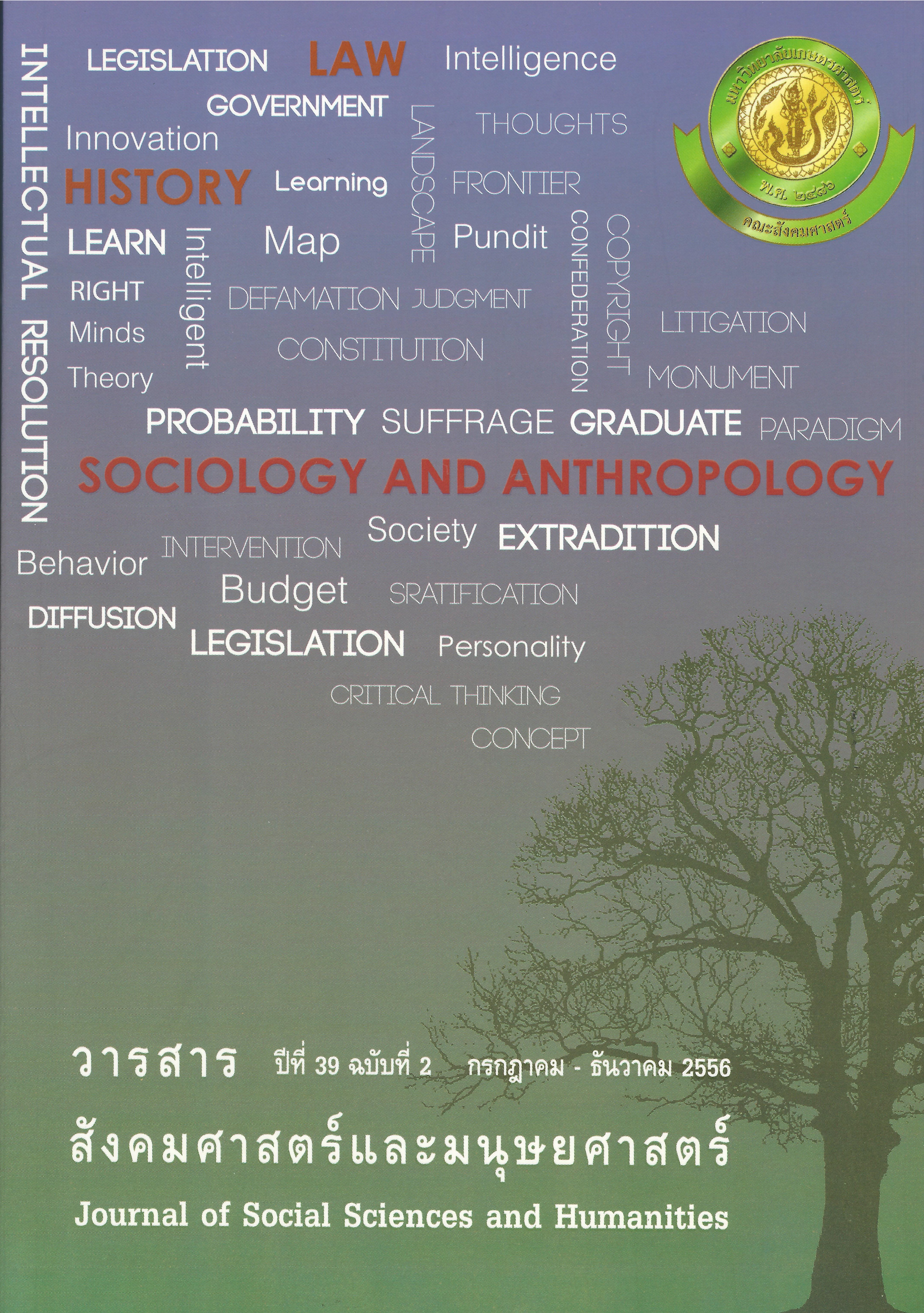การจัดการความขัดแย้งในชุมชน จังหวัดปทุมธานี
Main Article Content
บทคัดย่อ
การศึกษาครั้งนี้ มีวัตถุประสงค์ เพื่อศึกษาสภาพปัญหาและสาเหตุความขัดแย้งที่เกิดขึ้นในชุมชน จังหวัดปทุมธานี ศึกษาแนวทางการจัดการความขัดแย้งในรูปแบบต่างๆในชุมชนจังหวัดปทุมธานี และศึกษาแนวทางที่เหมาะสมในการจัดการความขัดแย้งในชุมชนจังหวัดปทุมธานี โดยมีวิธีการเก็บรวบรวมข้อมูล 4 ขั้นตอน ได้แก่ การศึกษาจากเอกสาร การเก็บรวบรวมข้อมูลเชิงปริมาณจากกลุ่มตัวอย่างผู้ประสบปัญหาจำนวน 200 ตัวอย่างทั้งในเขตเทศบาลและนอกเขตเทศบาล การสัมภาษณ์ผู้เกี่ยวข้องในการจัดการความขัดแย้งแบบเจาะลึก 30 ตัวอย่าง และการสนทนากลุ่มเพื่อแลกเปลี่ยนเรียนรู้จากผู้ประนีประนอมของศาล กลุ่มผู้อาวุโส ผู้นำชุมชน ผู้ใหญ่บ้าน กำนัน อบต. เทศบาล และอำเภอ จำนวน 30 คน โดยใช้แบบสอบถามและแบบสัมภาษณ์กึ่งโครงสร้าง ผลการศึกษาพบว่า สภาพปัญหาความขัดแย้งมี 4 ประการ ได้แก่ความขัดแย้งจากการไม่ได้รับความเป็นธรรมจากการบริการของรัฐ ความขัดแย้งที่เกิดจากค่านิยมต่างกันตามความเคยชินที่เคยปฏิบัติกันมา ความขัดแย้งจากการผลประโยชน์ขัดกัน และความขัดแย้งที่เกิดจากอุดมการณ์ที่แตกต่างกันทำให้เกิดการแบ่งพรรคแบ่งพวก สาเหตุของความขัดแย้ง มาจากสาเหตุด้านผลประโยชน์ ด้านความสัมพันธ์ ด้านค่านิยม ด้านข้อมูลการสื่อสาร และสาเหตุด้านโครงสร้าง และ/หรือกฎระเบียบของสังคมตามลำดับ นอกจากนี้ยังพบว่ามีแนวทางการจัดการความขัดแย้ง 3 แนวทางใหญ่ๆ เรียงตามลำดับ ได้แก่ การใช้สันติวิธี การไม่จัดการปัญหา และ การใช้วิธีรุนแรง การใช้สันติวิธีนั้นแบ่งได้ 2 แนวทาง คือ การเจรจา และการดำเนินการตามกฎหมาย ส่วนแนวทางที่เหมาะสมที่ก่อให้เกิดความรู้สึก ชนะ-ชนะ จนเป็นผลสำเร็จส่วนใหญ่เกิดจากการเจรจาไกล่เกลี่ยโดยคนกลาง
Resolutions of the Community Conflict in Pathumthani Province
This research aimed to study the nature and causes of conflicts in various communities in Pathum Thani Province, to offer resolution of those conflicts, and to recommend suitable models of conflict resolutions. The four steps of research methods were applied: firstly, studying the relevant document; secondly, collecting the data from 200 conflicted parties—both inside and outside the municipal areas; thirdly, in-depth interviewing of 30 mediators who dealt with conflicts; and fourthly, focus group discussing among court peacemakers, senior people, community leaders, village chiefs, sub-district chiefs, and officers from sub-district administration organization, municipality, and districts—using questionnaires and semi-structure interviews.
The research findings were as follows. First, the conflicts could be categorized into four main types—injustice of public services, conflicts of values, conflicts of interests, and conflicts of ideals—leading to partisanship. Causes of conflicts arose from different interests, social relationship, set of values, and communicative information and social structures or rules, respectively. Second, in dealing with conflicts, it was found that people in Pathum Thani adopted three main approaches: respectively peaceful approach, wait-and-see approach, and violent approach. Thirdly, peaceful approaches could be made in the forum of mediation and legal procedures. A win-win approach was mostly successful.


